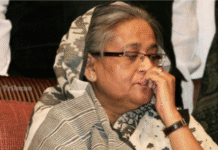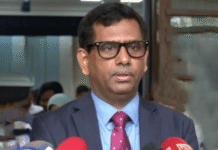Bangladesh Is Booming. Don’t Believe the Negative Hype
Sumit Ganguly’s recent FP article branded Bangladesh’s election a debacle. Dhaka’s ambassador to the United States begs to differ.
Foreign Policy’s Jan. 7 article titled “The World Should Be Watching Bangladesh’s Election Debacle” is an inaccurate and unfair portrayal of Bangladesh’s recent election.
The article is wrong when it asserts that Bangladesh doesn’t have a strategy to curb religious extremism. The opposite is the case. The government has a zero-tolerance policy on terrorism. Bangladesh has been lauded by the United States, India, and others for being a reliable ally in the global war on terrorism. In recent years, the government has intensified not only its enforcement but also its educational efforts designed to dissuade young men—the chief recruits of extremists—from radicalizing.
Bangladeshi authorities have investigated accusations of “disappearances” and found arrest rates no higher than normal and that many “disappearances” were convicted criminals on the lam. They also discovered that some of the extremists perpetuating violence wore police uniforms to disguise their identities. The few officers guilty of improper arrests have been stripped of their jobs.
Bangladesh Nationalist Party (BNP) leader Khaleda Zia and her son Tarique Rahman have been convicted by the independent judiciary of a variety of crimes. Evidence, not politics, is the reason they were found guilty. A U.S. FBI agent and a Royal Canadian Mounted Police officer have submitted sworn affidavits in a case pending against Zia. For five of the six years of Zia’s last term as prime minister (2001-2006), Bangladesh was ranked as the world’s most corrupt country by Transparency International. Bangladesh is still cleaning up her mess.
Bangladesh has a booming economy, a robust export trade, and human development indicators that outpace even its runaway growth. That’s why voters once again returned Prime Minister Sheikh Hasina to office.










